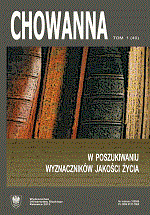
Use of Proverbs and Narrative Thought
Use of Proverbs and Narrative Thought
Keywords: functions of proverbs; mundane reasoning; narrative strength of proverbs; persuasive communication; proverbs in contexts; social interaction; social strategies
The article is based on a research of the functions of proverbs insocial interaction. Academician Matti Kuusi’s characterization of proverbs as signs of situations and emotional loadings was a starting point for the writer to collect material of proverbs in their social contexts. The multicultural corpus consists of context examples borrowed from other scholars around the world, from Finnish folklore archives and fiction, from everyday situations and the media. The use of proverbs or proverb-like sayings deals with questions concerning the same themes as in folk narrative research in general: selective memory, reconstruction of experiences, explaining and reasoning about the past, giving instructions and warnings for the future, encouraging or amusing each other, etc. The speech where proverbs are used and its mode of rationality differ from logical and scientific argumentation. The point is in the narrative strength of proverbs in social contexts. Proverbs are multifunctional and flexible instruments of everyday reasoning, although they may maintain solidified attitudesor traditional modes of thought of a certain culture.
More...
